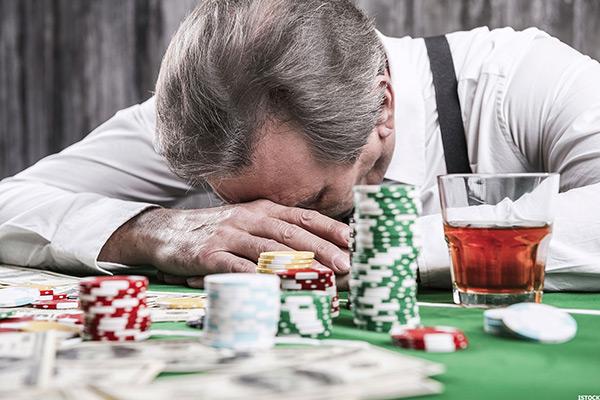888 told to pay record £7.8m by Gambling Commission. Does the industry need tighter controls?
Vulnerable customers who tried to self exclude were allowed to play on, while the company was also found to have failed to identify problematic behaviour which saw one customer dropping £1.3m including money stolen from their employer

With doubts increasingly being raised about the liberalisation of gambling in Britain that followed the advent of the National Lottery, here comes the Gambling Commission brandishing a record penalty.
888 has been told to pay £7.8m after vulnerable customers, who had self excluded from their accounts, were able use them to gamble £3.5m, and for failing to identify problem gambling behaviour.
After that, nobody really paid much attention to the upbeat set of results reported by Ladbrokes Coral.
Now, I’ve talked to people in the industry who would question whether gambling addiction should really be considered alongside chemical dependencies, such as addiction to narcotic drugs.
But research suggests otherwise. A study by an international team, including researchers from Imperial College London, and Cambridge University, that was published this year suggested that it activates the same pathways in the brain as do drug and alcohol cravings.
If the Journal of Translational Psychiatry isn’t on your list of preferring reading (the language is dense) you might care instead to take in the Panorama programme the BBC screened last year.
It handed a fixed-odds betting terminal addict a fictional £1,000 to play with and put him into an MRI scanner. The habit centres of his brain immediately lit up.
Gambling is a potentially dangerous product that needs close supervision, as research like this underlines, and the fine raises questions over whether the industry can be trusted to behave responsibly.
Happily, the 7,000 vulnerable customers who tried to take a “time out” from playing (the problem was caused by their exclusion from only one of 888’s two platforms) will get their money back and charities dealing with problem gamblers will also benefit so some good could will come from the affair.
But one of the issues raised by the regulator was that the error went uncorrected for an extended period of time, and as for 888 failing to identify problem behaviour, one customer was able to gamble over £1.3m including £55,00 stolen from their employer. They spent more than 3 hours a day gambling for 15 months.
Findings like that will be leapt upon by the people who have been arguing for tighter controls on the industry: If this is how it behaves, should we not push liberalisation into reverse? Should the concessions that have been granted, such as allowing advertising, not be reviewed?
Business news: In pictures
Show all 13The industry's advocates will point to the involvement of just one company, and to the level of penalty that has been imposed. A shot across the bows showing that the Commission has got this. Remember that we spend lots of money promoting responsible gambling ourselves, and we kick a ton of money over to the Treasury.
I’m not sure that will wash with the industry’s critics.
I gamble, and once did so regularly. It's fun and I'll daresay I'll throw some money after a horse or two when I'm at Ascot next week. But all this gives even me pause. The debate isn’t going anywhere anytime soon.
Subscribe to Independent Premium to bookmark this article
Want to bookmark your favourite articles and stories to read or reference later? Start your Independent Premium subscription today.

Join our commenting forum
Join thought-provoking conversations, follow other Independent readers and see their replies